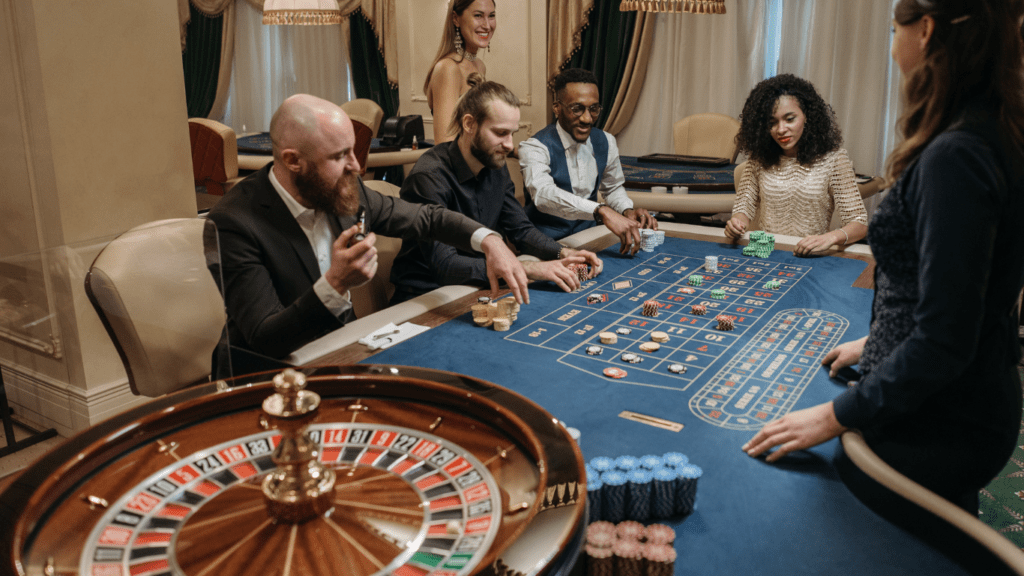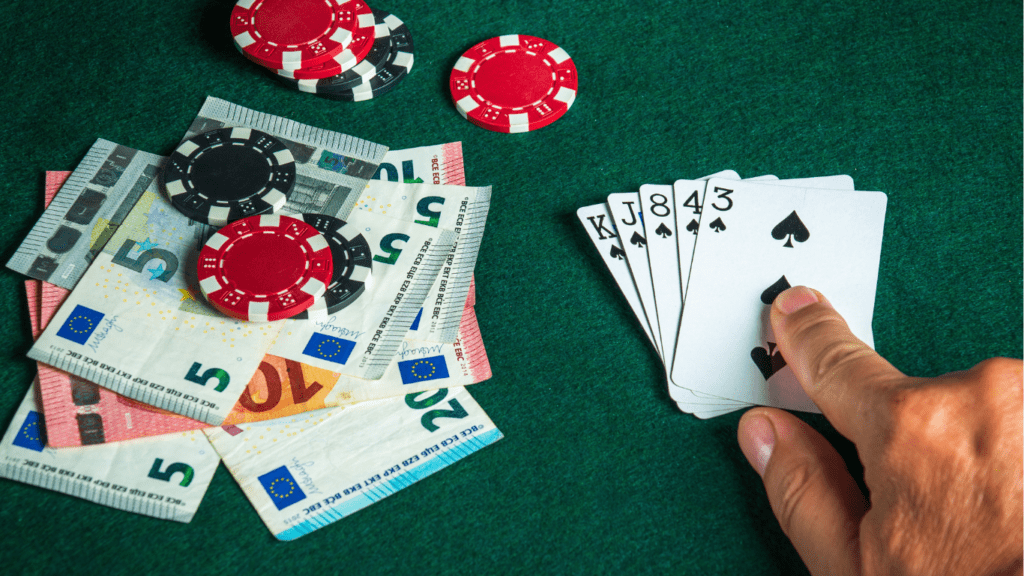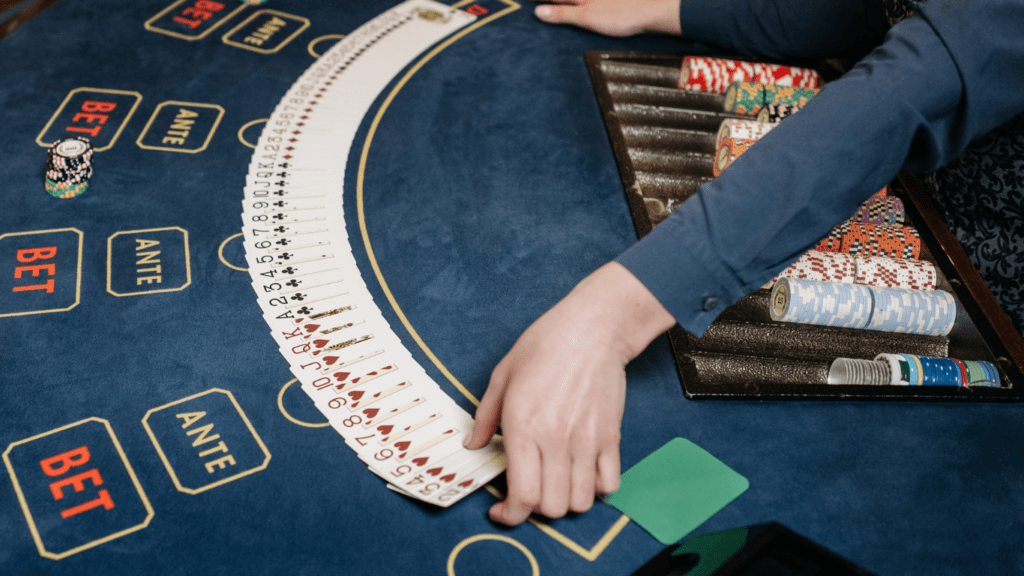Understanding Gambling Safety 101
Gambling safety encompasses techniques to enjoy games while minimizing potential risks. Responsible gambling requires awareness of both time and money spent. Setting personal limits ensures control over gambling habits and prevents overindulgence. Players must recognize early signs of problem gambling, such as chasing losses or neglecting responsibilities, to maintain control.
Various support systems can assist players, including self-exclusion programs and counseling services. Accessing these resources helps those struggling to regain their balance and enjoy gaming responsibly. Education about the odds of games enables informed decisions and realistic expectations. Knowing the rules and house edge improves the gaming experience by reducing surprises and boosting confidence.
Technology also plays a role in gambling safety. Online platforms often feature tools like deposit limits and activity tracking to help users monitor behavior. Utilizing these tools keeps gambling fun and pressure-free. Staying informed about safe gambling practices reinforces positive habits and contributes to a healthier gaming environment.
Setting Limits and Managing Finances
Managing finances strategically and setting clear limits is key in gambling responsibly. By establishing guidelines, I ensure a balanced approach, keeping enjoyment intact.
Establishing a Budget
A precise budget helps me control my gambling expenditure. Allocating a specific amount of disposable income ensures I don’t overspend. I consider my financial obligations, such as bills and savings, before deciding on this amount. Using budgeting tools or apps helps track my expenses against this allocated budget, promoting accountability. If I notice overspending, it’s crucial to reassess and adjust the budget accordingly.
Importance of Time Management
Time management plays a pivotal role in responsible gambling. I set specific time frames for gambling sessions to prevent excessive play. Using alarms or notifications helps me stick to these limits. Acknowledging how much time passes can prevent neglecting important daily responsibilities or social activities. By balancing gambling with other aspects of life, I maintain a healthier lifestyle.
Recognizing Problematic Behaviors

Understanding problematic gambling behaviors is essential for maintaining a healthy relationship with gaming activities. Identifying the signs of gambling addiction and implementing strategies for prevention can help one stay in control.
Signs of Gambling Addiction
- Recognizing the early signs of gambling addiction can prevent long-term issues.
- Frequent gambling at the expense of work or social commitments raises concern.
- Chasing losses, which involves the urge to recover financial losses through more betting, indicates loss of control.
- Experiencing irritability or anxiety when attempting to cut down on betting suggests psychological dependence.
- Hiding gambling activities from family or friends often signifies shame or guilt.
- Additionally, borrowing money for gambling or possessing mounting debts can signal unhealthy habits.
Strategies for Prevention
Practicing responsible gambling strategies mitigates potential risks. Setting strict time and financial limitations creates a controlled gambling environment. Maintaining a balance between gambling and other activities ensures it remains a leisure pursuit rather than an obsession. Engaging with educational resources, including online self-assessment tools, can provide valuable insight into one’s behavior. Seeking support from peer groups or professional counselors offers guidance in maintaining healthy habits. Using online platform features like:
- session limits
- deposit caps
helps manage impulses and sustain stability in gambling practices.
Utilizing Support Resources
Accessing support resources strengthens responsible gambling habits and provides valuable assistance. These resources are incredibly beneficial for addressing gambling-related issues and fostering a supportive environment.
Seeking Professional Help
Professional counselors offer tailored advice and therapeutic strategies to help manage gambling behaviors. I find that licensed therapists with experience in addiction can provide specialized care. Helplines also connect individuals to professionals who offer immediate support and guidance. This helps in making informed decisions about treatment options, which may include cognitive-behavioral therapy or other effective interventions. Insurance policies sometimes cover such treatments, making them more accessible.
Community and Online Support Groups
Joining support groups can be a vital step towards regaining control. In-person groups create a sense of community and understanding among individuals on similar journeys. Online forums, however, provide anonymity and convenience for those preferring digital interaction. Many platforms offer moderated discussions led by experienced members or professionals. These groups encourage sharing experiences, discussing challenges, and celebrating successes in a safe space. Engaging with these communities reinforces positive changes and supports continuous growth.
Tips for Maintaining a Healthy Balance
Maintaining a healthy balance while gambling involves setting personal limits and sticking to them. I focus on establishing firm time constraints for gambling activities, ensuring they don’t interfere with daily responsibilities. By setting a timer or alarm before I start, I can prevent sessions from extending beyond what I plan.
Budgeting serves as another key component of responsible gambling. I allocate specific amounts to gambling and carefully track all expenditures. This approach minimizes the risk of overspending and helps me stick to my financial goals. Tools like apps or spreadsheets can facilitate this process by offering detailed tracking and alert options for potential overspending.
Breaks are equally important for maintaining a healthy balance. Taking regular time-outs during gambling sessions prevents fatigue and helps maintain perspective. I use these pauses to reflect on my activity and whether I’m still enjoying myself without losing control.
Engaging in non-gambling activities rounds out my approach. I ensure gambling is not my sole form of entertainment by participating in hobbies and spending time with family and friends. This diversification strengthens my ability to maintain balance and enjoy gambling as a fun, controlled pastime.



 Cher Peters – Senior Gambling Strategist & Responsible Gaming Advocate
Cher Peters plays a pivotal role as the Senior Gambling Strategist, combining her extensive knowledge of gaming tactics with a commitment to responsible gambling. She specializes in crafting comprehensive guides and strategic tips designed to help players make informed, enjoyable gaming choices. Cher’s content spans from beginner-friendly tutorials to advanced playing techniques, helping players maximize their potential for success while remaining mindful of responsible gaming principles. Her expertise is particularly valued by players seeking to balance excitement with safety, making her an essential voice on Casino Champs Fortune.
Cher Peters – Senior Gambling Strategist & Responsible Gaming Advocate
Cher Peters plays a pivotal role as the Senior Gambling Strategist, combining her extensive knowledge of gaming tactics with a commitment to responsible gambling. She specializes in crafting comprehensive guides and strategic tips designed to help players make informed, enjoyable gaming choices. Cher’s content spans from beginner-friendly tutorials to advanced playing techniques, helping players maximize their potential for success while remaining mindful of responsible gaming principles. Her expertise is particularly valued by players seeking to balance excitement with safety, making her an essential voice on Casino Champs Fortune.
